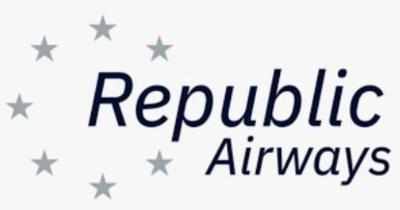Thu, Jun 16, 2022
Flight School Association Warns of Repercussions
The Flight School Association of North America (FSANA) has announced its opposition to a petition by Republic Airways for an exemption to Congressionally mandated pilot training requirements.

In its 10-page submission to the FAA, FSANA argues that the safety of the flying public is at stake if Republic is permitted to cut its pilot training hours by half as requested.
Republic Airways—a regional carrier for American, Delta, and United Airlines recently petitioned the FAA to lower the minimum pilot training for its restricted airline transport pilot (R-ATP) certificate program from 1,500 hours to 750.
“The United States has experienced the safest 10-plus years in the history of airline transportation in large part because of the ‘1,500-hour’ minimum requirement for pilot training passed by Congress in 2010,” said FSANA President & CEO Robert Rockmaker. “If the FAA allows Republic an exemption, it jeopardizes passengers and crew and represents a major step backwards in the hard-fought battle to keep airline travel safe in this country.”

Prompted by the 2009 crash of Colgan Air flight 3407–which claimed fifty lives—the 2010 Airline Safety and Federal Aviation Administration Extension Act was the first instance of new airline safety legislation to be adopted in over twenty-years. The measure requires airline pilots to complete a minimum of 1,500 hours of flight time under most circumstances.
In its submission to the FAA, FSANA contends that:
- A deviation from regulatory practices that have served to produce the safest period of airline travel in the United States since they were implemented represents a major risk to the flying public;
- Republic’s claim that its training regimen would meet and/or exceed that of military pilot training is erroneous;
- The exemption would result in a significantly higher turnover rate of Certified Flight Instructors (CFIs) at flight schools, further exacerbating the industry’s ability to train new pilots;
- Granting the exemption would open the floodgates for other airlines to reduce their minimum training requirements, causing a snowball effect of safety concerns industrywide.
FSANA is joined in opposition to Republic’s petition by the Airline Pilots Association (ALPA), Congressional members Brian Higgins and Chris Jacobs of New York, Flight 3407 Families, and Captain Chesley “Sully” Sullenberger—whose competent airmanship has won him esteem and apparent legislative influence.
A recent poll of FSANA members indicated 78% of respondents were strongly opposed to Republic’s petition to lower its training standards.
More News
Aero Linx: American Aviation Historical Society AAHS is dedicated to the preservation and dissemination of the rich heritage of American aviation. Our purpose is to collect, preser>[...]
CrewMember (UAS) A person assigned to perform an operational duty. A UAS crewmember includes the remote pilot in command, the person manipulating the controls, and visual observers>[...]
Immediately After The Right Main Tire Contacted The Runway Surface, The Right Main Landing Gear Failed On October 31, 2025, at about 1227 Pacific daylight time, a Maule M-7-235A, N>[...]
Also: IAE Acquires Diamond Trainers, Army Drones, FedEx Pilots Warning, DA62 MPP To Dresden Tech Uni The danger to the flight training industry and our future pilots is clear. Dona>[...]
"On December 3, 2025, at approximately 10:45 a.m., a Thunderbird pilot ejected safely from a F-16C Fighting Falcon aircraft during a training mission over controlled airspace in Ca>[...]
 ANN's Daily Aero-Linx (12.03.25)
ANN's Daily Aero-Linx (12.03.25) ANN's Daily Aero-Term (12.03.25): CrewMember (UAS)
ANN's Daily Aero-Term (12.03.25): CrewMember (UAS) NTSB Prelim: Maule M-7-235A
NTSB Prelim: Maule M-7-235A Airborne-Flight Training 12.04.25: Ldg Fee Danger, Av Mental Health, PC-7 MKX
Airborne-Flight Training 12.04.25: Ldg Fee Danger, Av Mental Health, PC-7 MKX Aero-News: Quote of the Day (12.04.25)
Aero-News: Quote of the Day (12.04.25)



